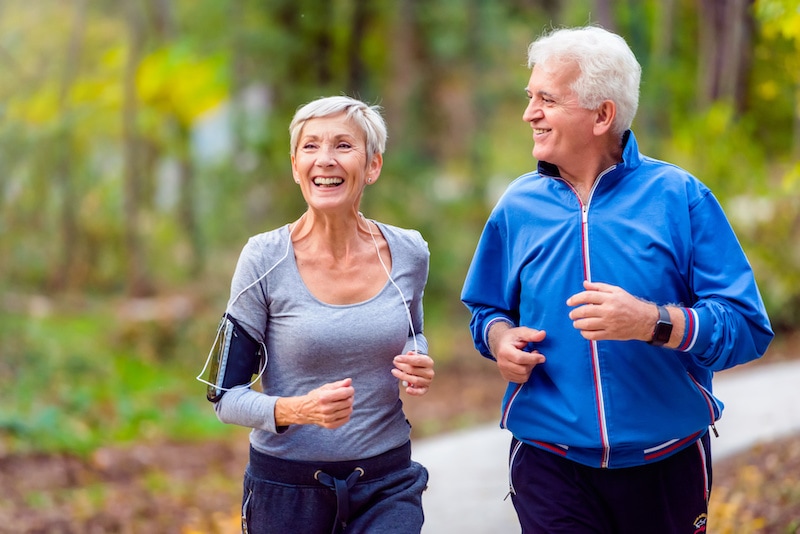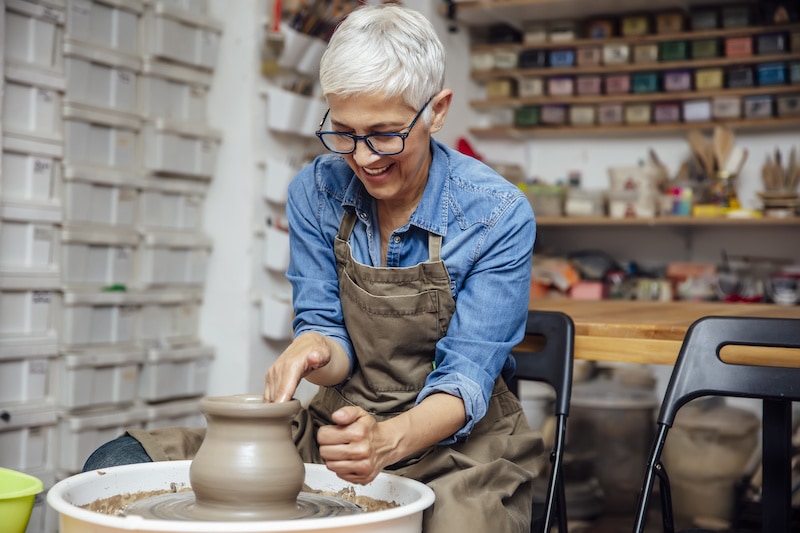There are many ways that you can strive towards staying healthy and active as you age. A combination of diet, exercise, and mental wellness can help us age gracefully and maintain our independence for longer. These health tips can help you or your aging loved ones to feel better, longer.
Tips for aging well in 2021.
As you get older, your minds and bodies change, and it becomes more critical than ever to take care of yourself. Here are some tips for successful senior health management and ensuring a long, happy, healthy life.
Maintain a healthy diet

While it may be harder to maintain a good diet for older adults, senior health experts agree that a good diet is one of the most important factors in health outcomes. Everyone needs food A high in vitamins and protein for strong bones and muscles, which means eating plenty of lean protein sources (chicken, turkey, and fish especially), fresh produce, whole grains like brown rice or quinoa, beans, or other legumes. Studies show a healthier diet for older adults can improve cognitive function and disease control.
Taking supplements
As you age, there are critical nutrients the body becomes depleted of. Be especially cognizant of your levels of each nutrient below and talk to your doctor about supplementing if necessary.
- Vitamin D is essential for boosting the immune system.
- Vitamin C is an antioxidant that helps improve the overall function of our bodies by boosting vitamin absorption, wound healing, and aids in vision and organ function.
- Calcium is essential for bone and teeth health.
- Vitamin A is good for heart, lung, and liver health.
- B Vitamins must be replaced as you age because our bodies become less efficient at absorbing B vitamins from the foods we eat. B12 deficiency can negatively affect brain function and only increases our chances of memory loss, high blood pressure, and nerve pain.
Get regular exercise

Specific exercises and specialized training may be better than others, depending on your health or any chronic pain. For example:
For those who experience joint pain, walking or swimming at low-impact levels can still help strengthen muscles without putting too much pressure on the joints. Even just daily walks around the block can make a big difference in senior wellness. Aerobic activities like dancing or yoga have been shown to improve mood, which also helps fight chronic illness symptoms like depression and anxiety. If mobility is an issue, tai chi classes where movements are done slowly with concentration can be easier on the body while being both meditative and strengthening.
Focus on mental wellness
Mental health in the elderly can be a big issue that often gets left behind. Mental health is severely affected by the loss of loved ones, feelings of isolation, and the physical and mental changes that come with aging. Talking about it in therapy, or with loved ones, or even acknowledging feelings of anxiety and depression can be the right step towards mental wellness.
Hobbies for keeping busy

Staying busy can help alleviate feelings of loneliness and boredom, especially for older patients living in a senior healthcare facility. Some hobbies good for seniors include arts and crafts, painting, playing card games, or even gardening on the property. Doing things they once enjoyed may not always be an option for them, so finding fun hobbies to pass the time can be a crucial component to maintaining overall wellness in seniors.
Caring for skin and teeth
Dermatologists always say the best skincare in your 50s is proper skincare in your 20s. Unfortunately, we can’t turn back the clock on our skin but can always do things to maintain it and keep it healthy. The number one thing seniors should do to protect their skin is to wear sunscreen every day. Skin cancer is prevalent in older adults, especially those who did not wear sunscreen consistently throughout their lives.
And as you age, you lose a lot of collagen, making the skin thinner and more susceptible to wounds and sun exposure. Teeth can also decline in health, and many seniors end up opting for dentures for ease. However, eating healthy, brushing regularly, and taking the proper vitamins can slow down the deterioration of skin, nails, and teeth.
Getting better sleep
Older adults often experience sleeping problems. This could be because of medications affecting sleep quality or health conditions like arthritis pain or acid reflux that can keep them up at night. If you’re having trouble falling asleep at night, talk to your doctor about calming methods and supplements that may work for you.
Hydration!

Drinking enough water is essential for human life. Drinking water helps hydrate your skin, organs and improve bladder and digestive health. The elderly are very prone to dehydration, so ensuring they get at least 64 ounces of water every day (the eight glasses of 8 oz. water rule) can help prevent ailments and boost overall health.
Staying social

The psychosocial changes of growing old can be detrimental to someone’s health. Many older adults may find it hard to maintain friendships or go to the social events they once did before they dealt with chronic illness or pain. However, socializing is a normal part of life, and without it, one can feel more lonely and depressed, which can actually lead to more medical problems. Therefore, caregivers and elderly care facilities need to make sure they keep a full calendar of social events that everyone can enjoy together each week—from bingo to dances to playing cards.
Routine medical care and tests
Regular health maintenance and prevention are vital to better health outcomes. There are some routine tests and treatments that can significantly improve the health of older individuals by ensuring their care plan is appropriate and catching any issues early before they become worse.
- Get vaccinated for influenza, pneumonia, and shingles (if applicable)
- Regular cancer screenings (breast, colon, prostate)
- Bone density scans for osteoporosis
- Blood pressure readings
- Check blood sugar levels to check for diabetes
- Lipid screening
- Check for high cholesterol and other blood tests
- Annual physicals
Additional safety measures
Elderly patients may face balance problems that require advance care planning to ensure they don’t fall and injure themselves. Using a walker, wheelchair, and installing handrails in rooms or hallways can ensure they always stay safe while moving about.
By following these tips, you can go on to live a long, healthy life and address health concerns before they become chronic health conditions. Here at Omcare, we believe a healthy lifestyle is possible no matter what age, and you can enjoy living longer by focusing on better health outcomes and wellness early on.

